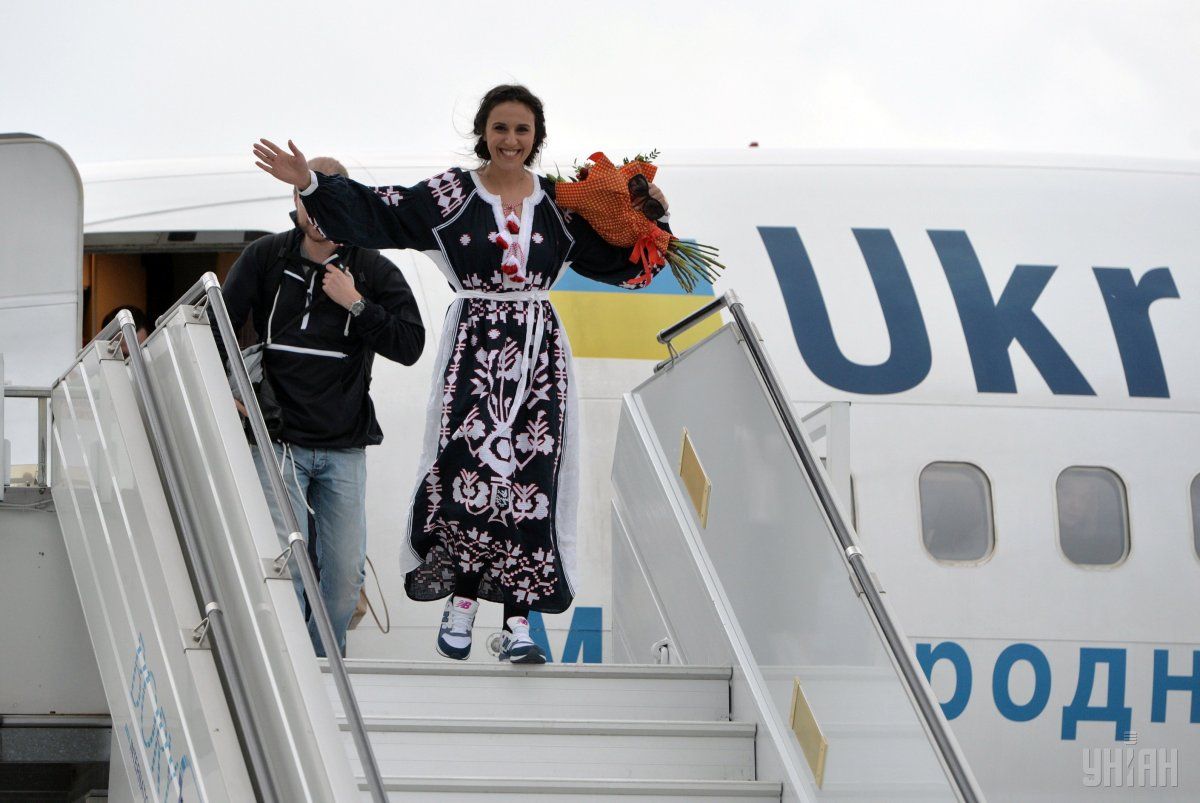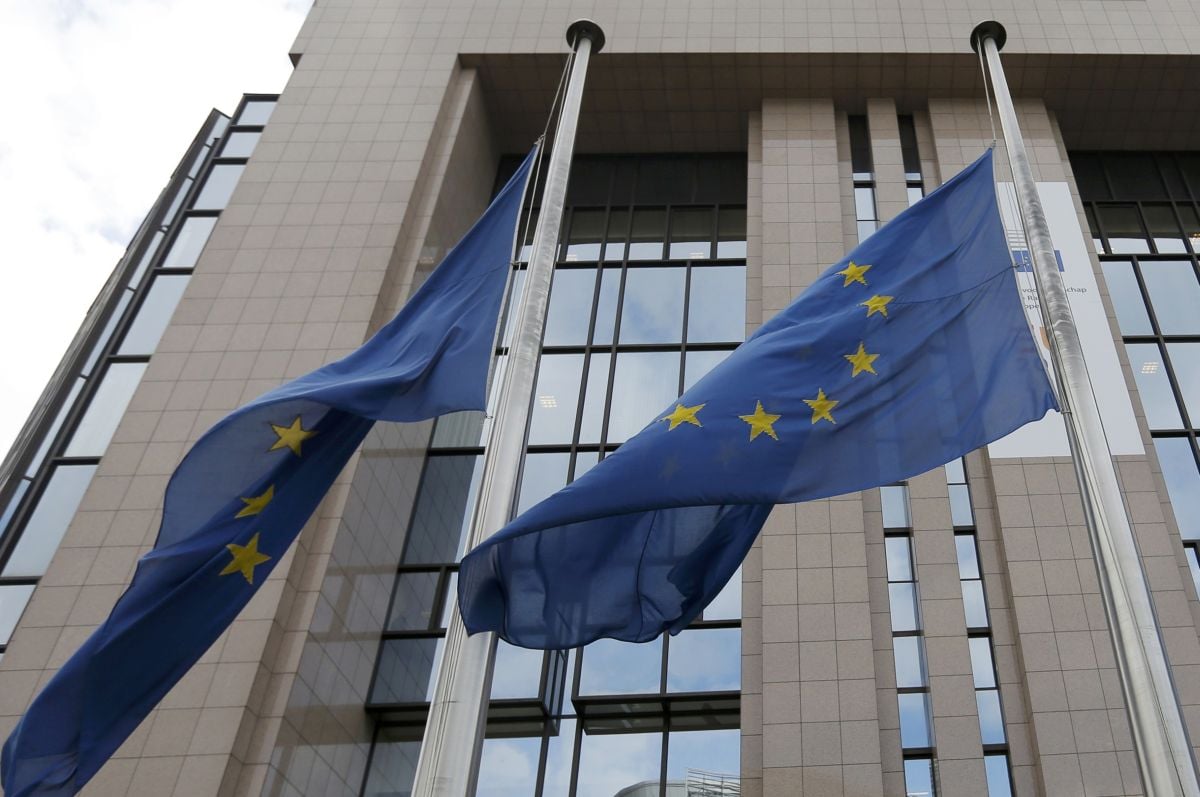
Ukrainian interest. Jamala's chance for Ukraine, visa-free hustle, and diplomatic rotation
Jamala's victory at the Eurovision Song Contest gives Ukraine a new chance for the implementation of the strategy of cultural diplomacy. The European Union has begun to turn up its nose at the issue of granting a visa-free regime for Ukraine, Georgia and Kosovo. New envoys of Ukraine’s strategic partners in Kyiv are able to give a positive impetus to bilateral relations.
Jamala's victory at the Eurovision-2016 opens up some interesting prospects for Ukraine. Symbolically, the voice of the Crimean Tatar people was highly acclaimed by the Europeans on the eve of the anniversary of the deportation of Crimean Tatars – the date which the occupying authorities in Russian-annexed Crimea tried to hush with formalities, while Kyiv celebrated it at the national level. Jamala has an excellent opportunity to keep reminding the whole world both about Crimea, and the situation in Ukraine, and it is important that she not break down toward any politicized context in her art, as such a specific emphasis may not be perceived well in Europe. Actually, the appeal of the Kremlin’s puppet authorities in Crimea to the singer to return to Crimea and obtain Russian citizenship looks like a weak compensation for the hysteria of Russian officials over Jamala’s victory.
Ukraine is facing a difficult task during the preparations to host the Eurovision-2017: it is necessary not only to ensure the effectiveness of external communications, avoiding the mistakes of 2005, but also to prove to citizens, who are now amidst a very difficult period for the independent Ukraine, that holding the contest is in fact appropriate against the background of an ongoing conflict in Donbas. Russia, for its part, will try to prove to Europeans that the situation in our country is not conducive to hosting the continent-wide competition. Confrontation on yet another front of Russia’s hybrid war is gaining momentum.
Read also"No delay": EU assures visa liberalization for Ukraine going as plannedThe next meeting of the Trilateral contact group in Minsk saw virtually no result, except for the agreement of the parties on the facilitation of the fate of orphans in Donbas. Russian representative Boris Gryzlov stresses the need for a general amnesty for the militants before the elections are held in Donbas, which seems like a clearly unacceptable condition. Meanwhile, U.S. Assistant State Secretary Victoria Nuland visited Moscow, where she held another round of political consultations with her counterpart on the Ukrainian issue Vladislav Surkov. Following the Russia visit of the major mediator of the U.S. Department of State, its chief John Kerry said that Washington does not intend to go back to “business as usual” with Russia until Moscow fulfills the Minsk deal.

The Donbas conflict and the failure of EU leaders to offer an effective way of its settlement, along with the threatening refugee factor, forces the European Union to start maneuvering in the issue of a visa waiver for Ukraine, Georgia and Kosovo, which of course leaves Kyiv anxious. Our country is the weakest link in this triad because of the large population and the tendency of the European elite to use the Ukrainian examples to solve their own political problems. The will to introduce a mechanism of easier suspension of a visa-free regime before even granting such waiver to the new states yearning for the European Union is not the best political maneuver in this situation. Ukrainian Foreign Minister Pavlo Klimkin was unexpectedly straightforward for the country’s top diplomat to point at this.
Read alsoWeek's balance: Satisfied IMF mission, Groysman’s plan, and struggle with freight trucksOn the other hand, the European Union is not spinning exclusively around the humanitarian and travel problems. The official start to a construction of TAP pipeline, which will bring natural gas from Azerbaijan to the Apennines as early as 2020 is another step toward an actual diversification of Europe’s energy supplies, and the Kremlin, as well as Gazprom, is definitely not happy about it.
Two of Ukraine’s strategic partner states simultaneously announced the rotation of their diplomatic representatives in Kyiv. The U.S. intends to send Marie Yovanovitch – an experienced diplomat, well-versed in the post-Soviet realities. The Commission on Foreign Affairs of the Polish Sejm approved the nomination of Jan Pieklo, who knows the situation in Ukraine perfectly, to the position of an Ambassador of Poland to Ukraine. The executive director of Polish-Ukrainian Cooperation Foundation PAUCI, he is not a career diplomat and not a member of the ruling Law and Justice party, but things will not be always easy for him in the light of recent events in Poland’s internal politics.
Yevgeny Magda

